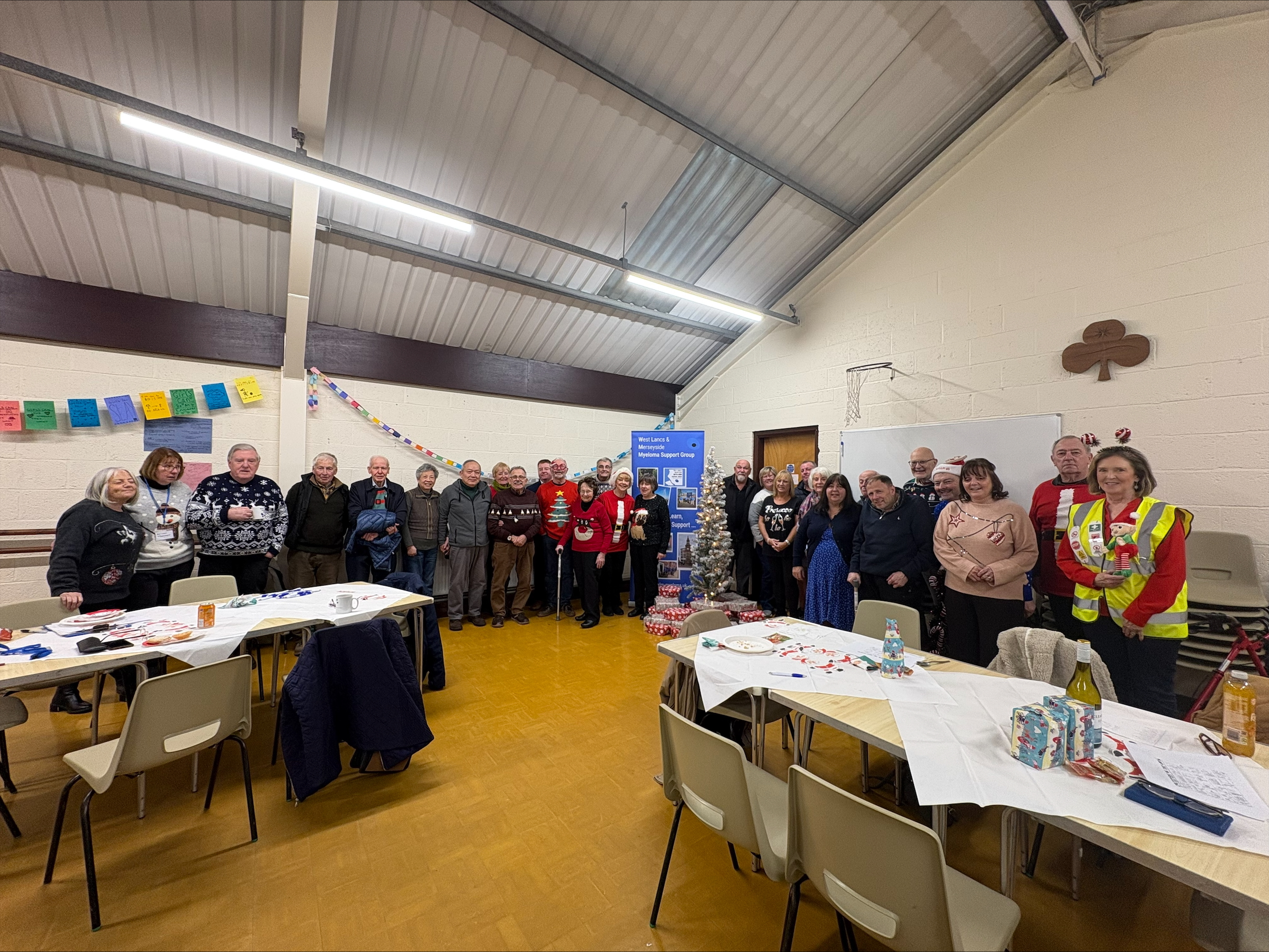Safeguard Policy
Leukamia & Myeloma Research UK (LMRUK) Safeguarding Policy
Policy Statement
LMRUK is committed to proactively safeguarding children, young people and vulnerable adults (in this policy together referred to as vulnerable people and each a vulnerable person) with whom LMRUK’s staff or anyone acting on its behalf come into contact during fundraising, benevolence or outreach activities. A vulnerable adult is someone who is aged 18 or over who: has a need for care and support (whether or not the Local Authority is meeting any of those needs); is experiencing, or at risk of, abuse or neglect; as a result of those care and support needs is unable to protect themselves from either the risk of, or the experience of abuse or neglect.
LMRUK recognises that:
- the welfare and safety of the vulnerable person is paramount;
- all vulnerable people, regardless of age, disability, gender, racial heritage, religious belief, sexual orientation or identity, have the right to equal protection from all types of harm or abuse;
- some individuals are additionally vulnerable because of the impact of previous experiences, their level of dependency, communication needs or other issues;
- working in partnership with vulnerable people, their parents, carers and other agencies is essential in promoting their welfare.
Whilst LMRUK is not routinely engaged in face-to-face activities with vulnerable people examples of activities in which staff and volunteers may encounter vulnerable people include work experience students under the age of 18, school visits, community projects, national and regional participation events and fundraising activities.
The Board has adopted this Safeguarding Policy which states LMRUK’s policy on preventing and reducing harm to vulnerable people when they are in contact with LMRUK staff or anyone acting on behalf of LMRUK. LMRUK expects everyone working or volunteering at LMRUK to support the Safeguarding Policy and comply with it.
Legal Obligation
Safeguarding is a complicated business and exists within a framework of both criminal as well as civil law (see Legal Framework below). Legislation is supported by a body of statutory guidance. LMRUK, as a voluntary organisation, must comply with section 11 of the Children Act 2004, specifically the legal framework in statutory guidance Working Together to Safeguard Children 2018 and the Care Act 2014. It is also under a duty to ensure that anyone that provides a service on LMRUK’s behalf also complies with section 11.
Responsibility & Accountability
Trustees have overall responsibility for safeguarding, even if certain aspects of the work are delegated to individual trustees or members of staff. The Trust Board should proactively safeguard and promote the well-being and welfare of LMRUK’s beneficiaries, staff and volunteers and others who come into contact with LMRUK. This is a key governance priority.
The issue of safeguarding is subject to regular reviews at Trust Board level and is reported on by exception at Board of Trustees’ meetings. In addition, ‘Safeguarding’ will be reported upon in the Annual Report and Accounts.
Given the nature of LMRUK’s activities, there is no requirement for a lead Safeguarding Trustee to be appointed. However, LMRUK’s nominated lead trustee for safeguarding policy and management is Tatjana Vinogradova.
This policy will be reviewed by the Trust Board annually.
Risk Assessments
Trustees have a duty to manage risk and to protect the reputation and assets of LMRUK. It is therefore vital that Trustees assess the risks that arise from LMRUK’s activities and operations involving vulnerable people and develop and put in place appropriate safeguarding policies and procedures to protect them. They must also undertake on-going monitoring to ensure that these safeguards are being effectively implemented in practice. This is critically important because on occasion charities may be targeted by people who abuse their position and privileges to gain access to vulnerable people, or their records, for inappropriate or illegal purposes.
Key safeguarding risks for LMRUK are:
- potential abuse of vulnerable people occurring during fundraising activities, through failure to safeguard them;
- potential abuse of vulnerable people occurring during third-party organised activities, supported by funding from LMRUK;
- ensuring that those who run activities that include vulnerable beneficiaries have the expertise, knowledge and skills to do so properly;
- failure to deal with any incident responsibly, appropriately and in a timely manner;
- failure to ensure that Trustees are clear about their responsibilities for safeguarding;
- failure to ensure that staff, Trustees and volunteers coming into frequent contact with vulnerable people are appropriately vetted;
- the reputational risk of damaging public trust and confidence in LMRUK through the occurrence of any alleged or actual incident;
LMRUK seeks to manage effectively the risks associated with activities and events through:
- completing a risk assessment process which involves identifying risks and means of reducing or eliminating them, for any new activities or events involving or potentially involving vulnerable people, and if changes are being made to activities or events involving o potentially involving vulnerable people;
- implementing the required actions identified by the risk assessment process and reviewing the effectiveness of these on a regular basis;
- recruiting staff and volunteers safely, ensuring all necessary checks are made;
- ensuring that the appropriate DBS or basic disclosure checks are conducted, depending on eligibility, for any individuals working with vulnerable people;
- requiring that new employees and individuals working with vulnerable people familiarise themselves with the content of this policy and any associated guidance;
- providing effective management for staff and volunteers through supervision, support and training;
- sharing information about child protection and good practice with vulnerable people, parents, staff and volunteers;
- sharing information about child protection and good practice with vulnerable people, parents, staff and volunteers;
- sharing information about concerns with agencies who need to know, and involving parents and vulnerable people appropriately.
Reporting Safeguarding Concerns
Staff, volunteers and Trustees need to be aware of their responsibilities for reporting concerns in relation to safeguarding matters and the circumstances in which they should make a referral to the Local Authority or police if necessary.
LMRUK will ensure that safe, appropriate, accessible means of reporting safeguarding concerns are made available to staff, beneficiaries, the public and the third parties LMRUK works with. Safeguarding concerns about vulnerable people and others who come into contact with LMRUK will be diligently and promptly responded to, recognising the sensitivity it may hold for those involved.
It is essential that confidentiality in maintained at all stages of the process when dealing with safeguarding concerns. Information relating to the concern and subsequent case management should be shared on a need to know basis only, and should be kept secure at all times.
Staff members who have a complaint or concern relating to safeguarding should report it immediately to their line manager. If the staff member does not feel comfortable reporting to their line manager (for example if they feel that the report will not be taken seriously, or if that person is implicated in the concern) they may report to the nominated lead trustee for safeguarding policy and management or other appropriate trustee. Reports should be made immediately where possible, but at least within 24 hours. This will enable each situation to be investigated thoroughly, whilst treating the parties involved fairly and with sensitivity. It will also ensure that suitable steps are taken as a result of any investigations, which may include contacting the police and/or fulfilling the legal duty to refer information to the DBS and/or the Local Safeguarding Children Board (LSCB) or Local Safeguarding Adults Board (LSAB) as required. Not all concerns justify a notification to the Local Authority but must still be recorded.
The Trustees acknowledge their duties to make a Serious Incident report to the Charity Commission and other relevant bodies if:
- there has been an incident where someone has been abused or mistreated (alleged or actual) and this relates to the activities of LMRUK;
- beneficiaries of LMRUK have been, or are alleged to have been, abused or mistreated while under the care of LMRUK, or by someone connected with LMRUK, for example a Trustee, staff member or volunteer; or
- there has been a breach of procedures or policies at LMRUK which has put beneficiaries at risk, including a failure to carry out checks which would have identified that person is disqualified under safeguarding legislation, from working with vulnerable people.
Legal Framework
Safeguarding is a complicated business and exists within a framework of both criminal as well as civil law. Legislation is supported by a body of statutory guidance and this policy has been drawn up on the basis of law and guidance that seeks to protect children and vulnerable people, namely:
- Children Act 1989
- United Convention of the Rights of the Child 1991
- Data Protection Act 2018
- Human Rights Act 1998
- Sexual Offences Act 2003
- Children Act 2004
- Safeguarding Vulnerable Groups Act 2006
- Equality Act 2010
- Protection of Freedoms Act 2012
- Care Act 2014
- Statutory guidance Working Together to Safeguard Children 2018
- Charity Commission guidance Safeguarding and protecting people for charities and trustees
- Relevant government information on safeguarding vulnerable people
- Institute of Fundraising – Treating Donors Fairly
- The Code of Fundraising Practice – The Fundraising Regulator
This policy should be read alongside our other policies and procedures.
Policy adopted on 12.06.2019, next due for review on 11.06.2020









